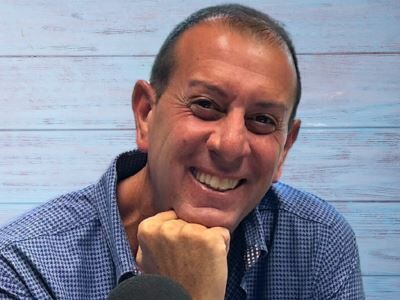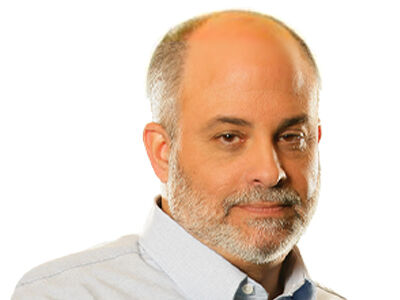California voters approve congressional redistricting measure
National News

Audio By Carbonatix
10:30 PM on Tuesday, November 4
Madeline Shannon
(The Center Square) - Proposition 50, California's mid-decade congressional redistricting initiative, passed with a majority of the vote, according to multiple national news outlets.
Passage seemed imminent at 9:19 p.m. local time Tuesday with 64.7% of voters approving Prop. 50 and 35.3% rejecting it, according to the Secretary of State’s website. Approximately 44.8% of election night precincts had partially reported their numbers by that time.
The results of the special election on Prop. 50 in California will be officially reported by the California Secretary of State's Office.
In a sign this wasn’t just any election, an estimated 200 people waited in a long line to cast their vote in the Proposition 50 special election at the Simi Valley Public Library - all within minutes of the polls closing at 8 p.m. Simi Valley is near Los Angeles.
The line stretched from a flagpole past the Simi Valley Police Department through a large civic center to the library, according to those who dropped off their ballots after the sun set on Tuesday.
“It’s very exciting to see the enthusiasm, the results look amazing and California has spoken,” Assemblymember Gail Pellerin, D-Santa Cruz and chair of the Assembly Elections Committee, told The Center Square Tuesday night. “This is just a really pivotal election.”
Pellerin added that Democrats face more work before the 2026 midterm elections.
“While it does give us the opportunity to redistrict to create five seats in Congress that lean more Democratic, we still have work ahead to elect a Democrat to those seats in 2026,” Pellerin told The Center Square. “So this momentum, this excitement, this fight we have on our hands is not going to end.”
Secretary of State Shirley Weber, a Democrat, previously said she hoped that voter turnout for the Nov. 4 special election in California would bring out 60% to 70% of registered voters.
With the passage of Prop. 50, many rural, mostly conservative areas in the state would be grouped with large, urban areas that lean Democratic. One such community is Lodi, just north of Stockton.
The entire city of nearly 70,000 people is currently part of the 9th Congressional District. Under Prop. 50, Lodi will be divided into three congressional districts, with one being looped in with part of Sacramento. The other two will be looped in with cities and communities in the San Francisco Bay Area, according to a map on the California State Assembly’s Elections Committee website.
The state’s Legislative Analyst’s Office shows that the special Prop. 50 election in California cost $200,000, a one-time expense, which counters Prop. 50 critics’ claims that the election cost California taxpayers an estimated $200 million - a figure shown in arguments against Prop. 50 on the Secretary of State’s website.
The Prop. 50 push to re-draw congressional districts mid-decade follows Texas’ recently-redrawn congressional districts, which Newsom has publicly said was a bow to political pressure from President Donald Trump to create five new seats in Congress for Republicans. Newsom, who pushed for California’s own redistricting effort this year, said California would even the scales with its newly-created five House seats that are widely expected to be filled by Democrats under Prop. 50.
“We’re not just drawing maps. We’re drawing a line in the sand,” Newsom said on CNN in October. “We’re going to win on Proposition 50. We are going to fight fire with fire.”
However, the five California Republican congressmen who stand to lose their seats with the passage of Prop. 50 - Kevin Kiley, R-Rocklin; Doug LaMalfa, R-Yuba City; Darrell Issa, R-San Diego County; Ken Calvert, R-Riverside County, and David Valadao, R-Bakersfield - see the initiative as a power grab from the Democratic Party.
“My message to voters is simply that if you disagree with gerrymandering, then you should vote no,” Kiley said on CBS News in October. “This proposition is about one thing and one thing alone, and that is to bring California back to the era of political gerrymandering.”
Most of those five congressmen took to social media on Tuesday to urge voters in California to vote against Prop. 50.
“Don’t let Democrats silence your voice and eliminate citizen redistricting in California,” wrote Calvert on his official Facebook page.
Kiley, LaMalfa, Calvert, Issa and Valadao were all unavailable for comment on Tuesday night.
Early polling in the weeks before the election showed that more likely voters in California were in favor of Prop. 50 than likely voters were against the initiative, according to an Emerson College poll. Republican lawmakers in California told The Center Square on Tuesday night that more could have been done to sway voters against the mid-decade redistricting effort.
“The data that I’ve seen early on, they don’t show the most positive sense for those who are no on 50,” Assemblymember David Tangipa, R-Fresno and member of the Assembly Elections Committee, told The Center Square before election results were reported. “I think we can run a better campaign, there’s a lot of groups we worked together with, and there’s more we could’ve been doing to really push it as much as we can.”
Both state district and congressional district lines in California are normally drawn by the independent California Citizens Redistricting Commission, which draws both boundaries after the U.S. census, which happens once every 10 years. The commission was created after California voters authorized its creation in 2008. That initial vote gave the commission the task of drawing state Assembly and Senate lines. Through a 2010 vote, the commission’s mandate was expanded to include drawing congressional district lines.
Prop. 50, while controversial to many, would be temporary. The new congressional maps that would be adopted by passage of Prop. 50 expire in 2030. The new maps would be in place for the 2026 midterm elections; the 2028 general election, in which Newsom has voiced his interest in running for president; and the 2030 midterms.
Lodi’s city council and mayor were unavailable for comment on Tuesday night. Josh Harder, the Democratic congressman who represents Lodi and the rest of the 9th congressional district in the U.S. House of Representatives, was not available on Tuesday.
Official election results will be reported in the coming days and will be certified by Dec. 12, according to the Secretary of State’s website.







